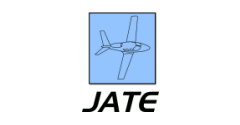Abstract
The Federal Aviation Administration emphasized the need to focus on and develop human factors training as early as 1993 in official Human Factors Policy Order 9550.8. The purpose of this study was to conduct a detailed qualitative phenomenological analysis of the risk perceptions and decision-making model of collegiate aviation pilots for unstabilized approaches. The study focused on understanding how collegiate aviation pilots perceive unstable approaches, the risk associated with unstable approaches, and the factors that trigger pilots to execute a go-around. The International Air Transportation Association warns that continuing an unstabilized approach can lead to runway excursions, hard landings causing damage to aircraft, or even controlled flight into terrain. The theoretical framework guiding this study was the risk compensation theory. The researchers recruited 15 participants through purposeful sampling for a phenomenological analysis using semi-structured interviews and a short questionnaire. A phenomenological methodology enabled the researchers to bring forth into consciousness preconceived ideas about unstabilized approaches and then set them aside. To address the research questions, information collected from individual interviews was analyzed and triangulated using a qualitative questionnaire. Three major themes emerged from the data: (a) effect of internal perceptions, (b) external pressures, and (c) unique worldviews. The findings validated the risk compensation theory’s principles by exposing the influence of mental and environmental factors impairing participants’ judgment of an unstabilized approach. Further research is required for developing standardized and objective stabilization criteria that the general aviation community can accept.
Recommended Citation
Misra, Shlok; Albelo, Jorge L.D; and Fraticelli Rivera, Victor
(2022)
"Assessing Unstabilized Approaches: A Phenomenology Study of the Risk Perceptions and Decision-Making Thought Process of Collegiate Aviation Pilots,"
Journal of Aviation Technology and Engineering:
Vol. 11:
Iss.
1, Article 1.
Available at: https://doi.org/10.7771/2159-6670.1234


